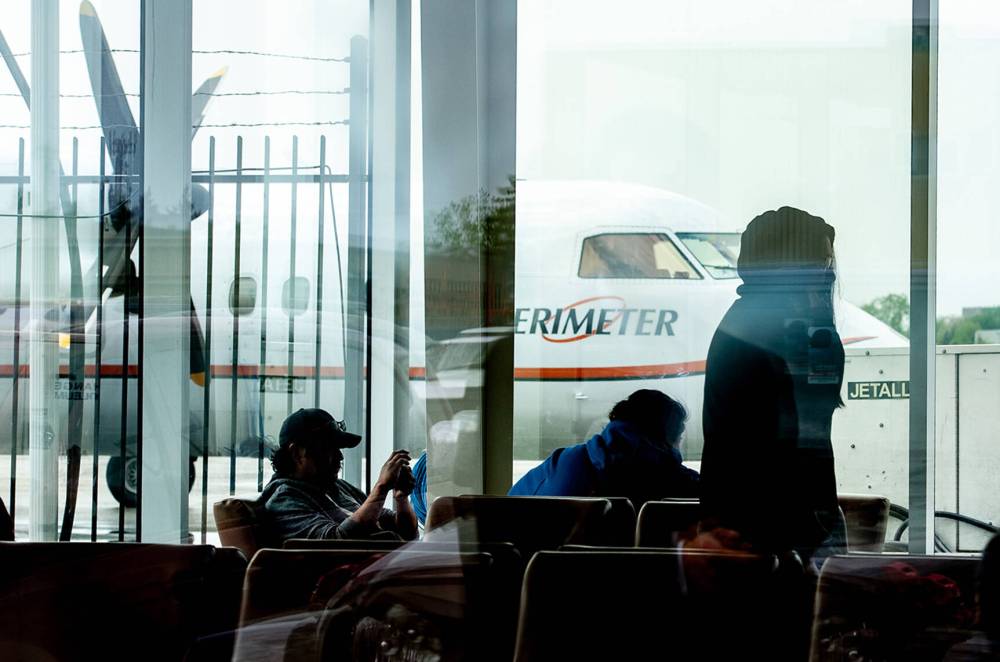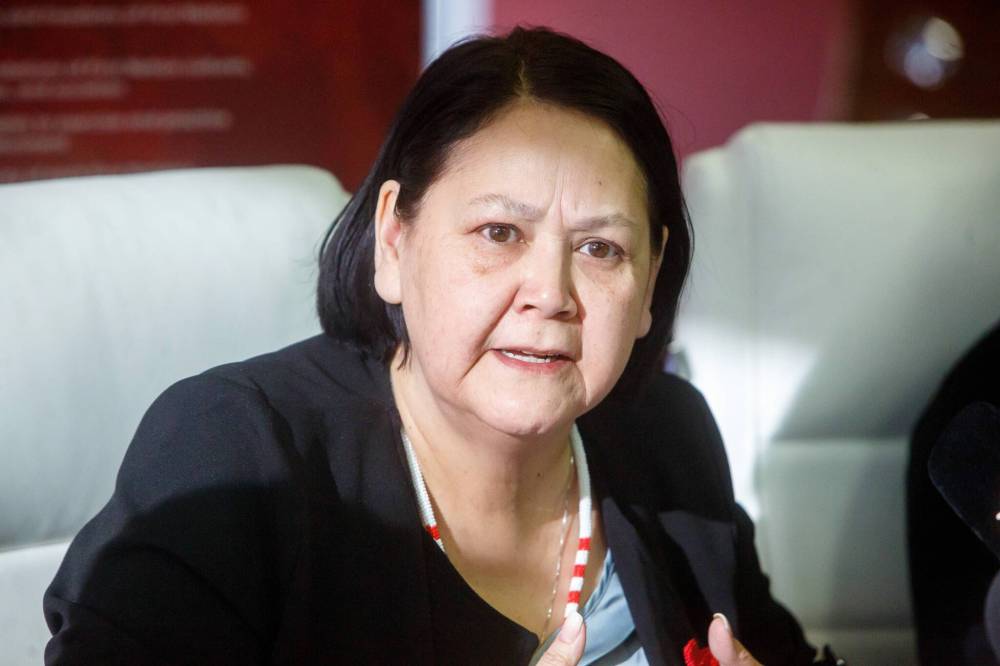Chiefs want investigation into air travel
Urge Transport Canada probe of monopoly to northern communities
Advertisement
Read this article for free:
or
Already have an account? Log in here »
To continue reading, please subscribe:
Monthly Digital Subscription
$0 for the first 4 weeks*
- Enjoy unlimited reading on winnipegfreepress.com
- Read the E-Edition, our digital replica newspaper
- Access News Break, our award-winning app
- Play interactive puzzles
*No charge for 4 weeks then price increases to the regular rate of $19.00 plus GST every four weeks. Offer available to new and qualified returning subscribers only. Cancel any time.
Monthly Digital Subscription
$4.75/week*
- Enjoy unlimited reading on winnipegfreepress.com
- Read the E-Edition, our digital replica newspaper
- Access News Break, our award-winning app
- Play interactive puzzles
*Billed as $19 plus GST every four weeks. Cancel any time.
To continue reading, please subscribe:
Add Free Press access to your Brandon Sun subscription for only an additional
$1 for the first 4 weeks*
*Your next subscription payment will increase by $1.00 and you will be charged $16.99 plus GST for four weeks. After four weeks, your payment will increase to $23.99 plus GST every four weeks.
Read unlimited articles for free today:
or
Already have an account? Log in here »
Hey there, time traveller!
This article was published 07/09/2023 (788 days ago), so information in it may no longer be current.
Wasagamack Anisininew First Nation Chief Walter Harper’s recent first experience with new baggage policies at Perimeter Aviation left him so frustrated he decided to boycott the airline, which provides the only scheduled service to the community.
At a press conference on Wednesday, Harper and fellow chiefs from the Island Lake Tribal Council communities, along with Cathy Merrick, grand chief of the Assembly of Manitoba Chiefs, called on Transport Canada to investigate the so-called monopoly in air travel to those communities.
One company, Exchange Income Corp., owns most of the regional airlines in the province, including Perimeter Aviation, which services about 24 northern communities, many with no all-road access.

Perimeter recently implemented five per cent price increases on fares and a new baggage policy that increased the weight allowed per passenger from 60 pounds to 70 pounds but restricted the number of bags allowed to five. It had previously been unlimited.
At the press conference, held at an Island Lake Tribal Council-owned pharmacy across the street from Perimeter’s Winnipeg terminal, First Nation officials took turns listing a litany of grievances about poor air service and poor access to health care.
“We’re not asking people to feel sorry for us, we are just asking that people understand what we have to deal with,” said Ron Beardy, a band councillor from Garden Hill First Nation.
“First Nations people want proper and fair service. That’s all they want,” Merrick added.
Community members spoke about deaths of beloved elders — including one a couple of days ago — that they contend could have been prevented by better air service and better health-care facilities.
As well as pointing the finger at Perimeter, federal and provincial government policies also bear plenty of responsibility, Merrick said.
Officials from Perimeter and Exchange Income Corp. took exception to the criticism.
“Over the last 60 years we have had a wide variety of competitors and while we hope our guests choose us because of our service offering, it has been our commitment to working with northern communities that has helped us grow,” the company said in a release put out in anticipation of the press conference.
The airline has partnership agreements with the communities that include investments in community development and other benefits, but Grand Chief Scott Harper of the Island Lake Tribal Council said those agreements benefit the company more than the communities.
Mike Pyle, the CEO of Exchange Income Corp., said the criticism hurt.
“We have invested millions in new aircraft and other services,” he said. “We invested in the communities. No other airline company has done that.”
Cindy Woodhouse, a regional chief, for the Assembly of First Nations, said she was flying to Ottawa this week and the return fare is $438, but a full fare ticket to Garden Hill is $998.
Pyle said advanced bookings on Perimeter flights can mean discounts of between 30 and 40 per cent. The recent fare increases are less than increases the larger airlines have imposed recently during the spike in inflation, he said, noting costs per seat mile to fly to the north are a lot more than mainline airlines because of smaller planes and the fact that gravel runways result in higher maintenance costs on the planes.
First Nation leaders listed a litany of complaints, including cancelled or delayed flights, which have resulted in missing crucial medical appointments.
But Perimeter does not cancel Medivac flights, which are dispatched by provincial health officials.

When it comes to delayed or cancelled scheduled flights, weather in the north plays a huge factor. Most of the airports do not allow for instrument landing, so bad weather precludes flights from landing.
A recent conclusion to a pilots’ contract issue will mean scheduling problems will be much less of a problem, Pyle said.
Merrick said the concept of creating a First Nations airport authority has been something the organization has been working on for some time.
For instance, a major challenge for the Island Lake communities is accessing airports that are built on islands. Communities have been asking for better airport facilities.
Both Merrick and Woodhouse said they plan on communicating with Transport Canada about air travel complaints, but that process has not yet begun.
Competition in air service to northern communities has always been tough to maintain.
Pyle said Perimeter has been serving the north for 60 years and isn’t going anywhere.
He and others suggest one of the reasons there’s not a lot of competition is because the market can’t bear it.
Many smaller carriers have come and gone, typically because the economics cannot sustain it.
In the meantime, Perimeter and Exchange Income Corp. continue to work at better community relations. Among other things it has an Indigenous pilot training program underway that covers the entire cost for participants.
martin.cash@freepress.mb.ca


